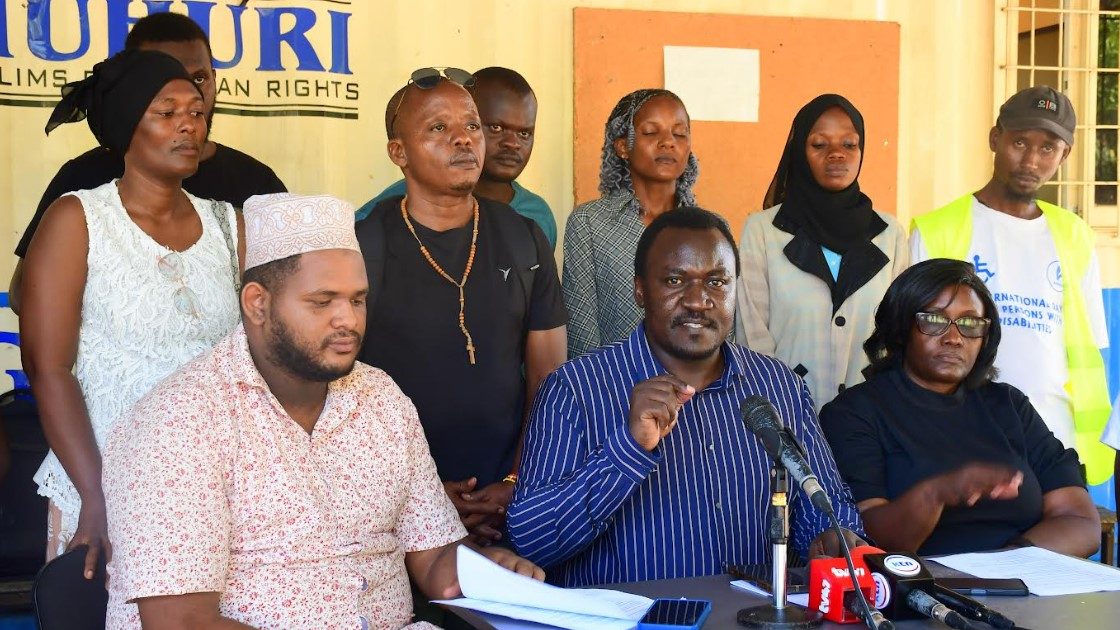Mombasa residents, business owners demand action on infrastructure challenges

Many business operators have resorted to hiring private waste management services due to inconsistent garbage collection, further straining their operational costs.
Mombasa County residents and business owners are calling on the county government to address critical infrastructure challenges that continue to hamper daily activities and economic growth.
They cite persistent flooding, deteriorating roads, unreliable waste collection, and inadequate street lighting as major setbacks affecting both businesses and households.
More To Read
- Mombasa traders decry high taxes, cargo clearance delays
- Optimism in Mombasa as Salaam Microfinance Bank opens Shari’ah-compliant branch
- How Form Two dropout turned passion for photography into successful business
- Counties spent Sh4.8 billion on legal fees, garbage collection - Controller of Budget
- Waste collection initiative helps Majengo youth improve their livelihoods
- Mombasa County officials face fraud charges over Sh1.6bn garbage scandal
Many business operators have resorted to hiring private waste management services due to inconsistent garbage collection, further straining their operational costs.
Others highlight the dangers posed by poor street lighting, particularly in commercial areas such as Tononoka, Ganjoni, and Old Town, where security concerns have escalated.
“We pay trade licences and other county fees, yet we still have to handle our garbage and navigate flooded roads whenever it rains,” said Said Bakari, a shop owner in Majengo.
“The government needs to show us where our money is going.”
In Tudor, residents point to clogged drainage systems that cause frequent flooding, making roads impassable and damaging property.
Motorists and pedestrians alike struggle with pothole-ridden roads, while traders complain that poor infrastructure discourages customers.
“The county needs to take waste management and road maintenance seriously,” said Jane Mwaka, a grocery vendor.
“We can’t keep paying for services that aren’t delivered.”
Licencing processes
Meanwhile, business owners are also raising concerns about licensing processes and enforcement practices.
A recent study by The Coast Civil Society Network for Human Rights (CCSNH) on Own Source Revenue in Mvita Sub-County echoes these concerns, recommending urgent infrastructure improvements to encourage compliance with trade licensing fees.
The study, conducted in December 2024, mapped 14,808 businesses and found that 18,562 sub-businesses were operating under principal licensees, raising questions about regulatory gaps.
CSCNH Chairman Zedekiah Adika emphasised the need for better accountability, calling for the county to lower initial licensing fees in underserved areas to promote business formalisation.
He also encouraged Coast counties to leverage their natural resources to expand revenue streams.
“The public needs to see tangible benefits from the revenue collected. It’s time for service delivery to match the taxes and fees businesses are paying,” Adika said.
Adika observed that the county has been performing well in business revenue collection and suggested that reducing Single Business Licensing fees could encourage more enterprises to enter the tax bracket.
In Mvita Sub-County, trade licensing fees are projected to generate approximately Sh276 million, with small businesses playing a key role in this revenue stream. Majengo Ward leads in contributions.
“The Sub-County accounts for 45 per cent of the total estimated revenue potential of Sh600 million across the county,” Adika stated.
Muslims for Human Rights (MUHURI) Executive Director Walid Kassim noted that nearly half of businesses in Tononoka and Ganjoni wards cited security risks due to poor street lighting, affecting their ability to operate after dark.
He urged the county government to implement measures that enhance transparency in revenue collection and service delivery.
The report further recommends that the county government engage business owners in decision-making processes, particularly in tariff setting and resource allocation, to foster trust and cooperation in Mombasa’s trading environment.
Top Stories Today











































